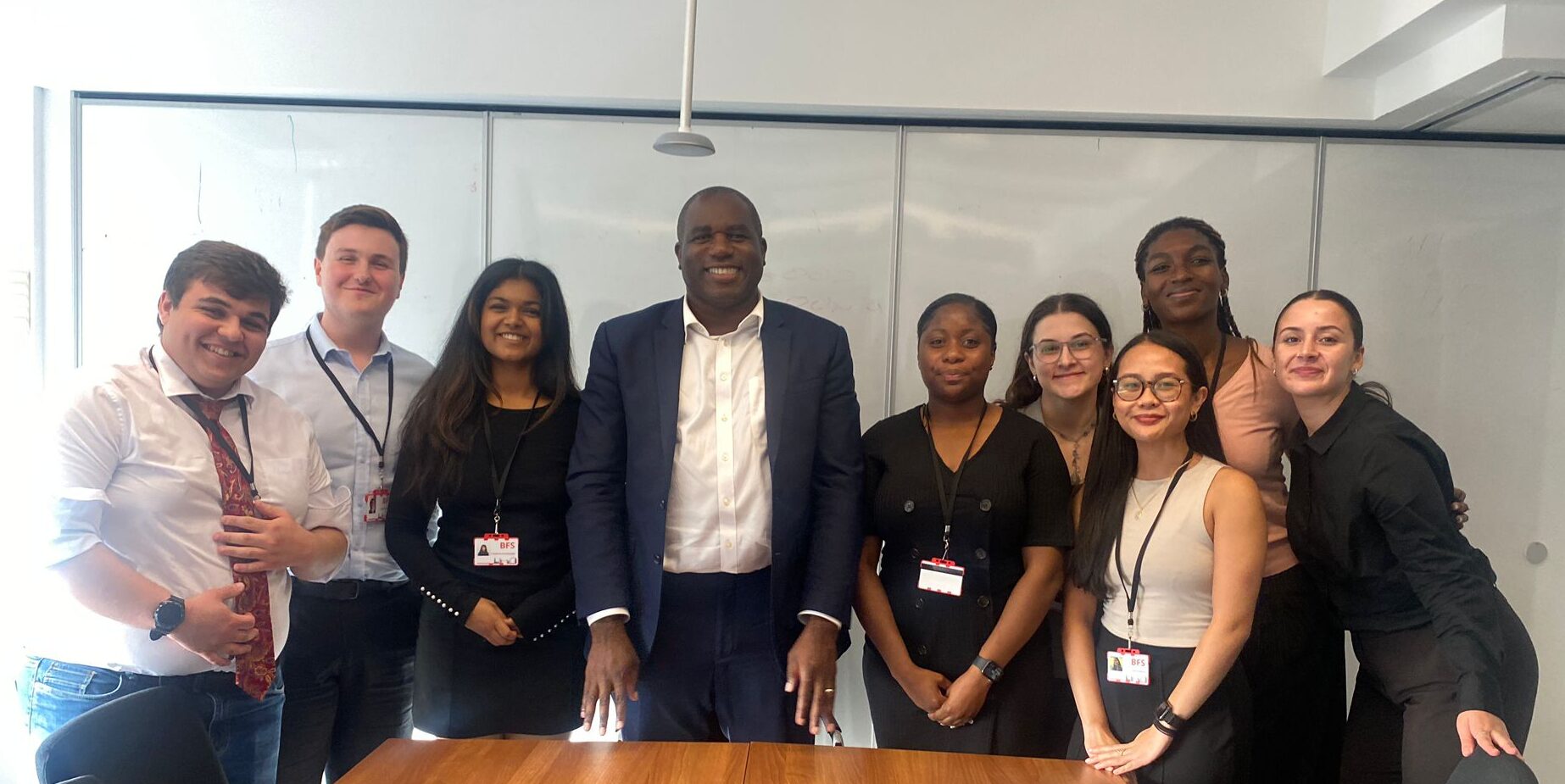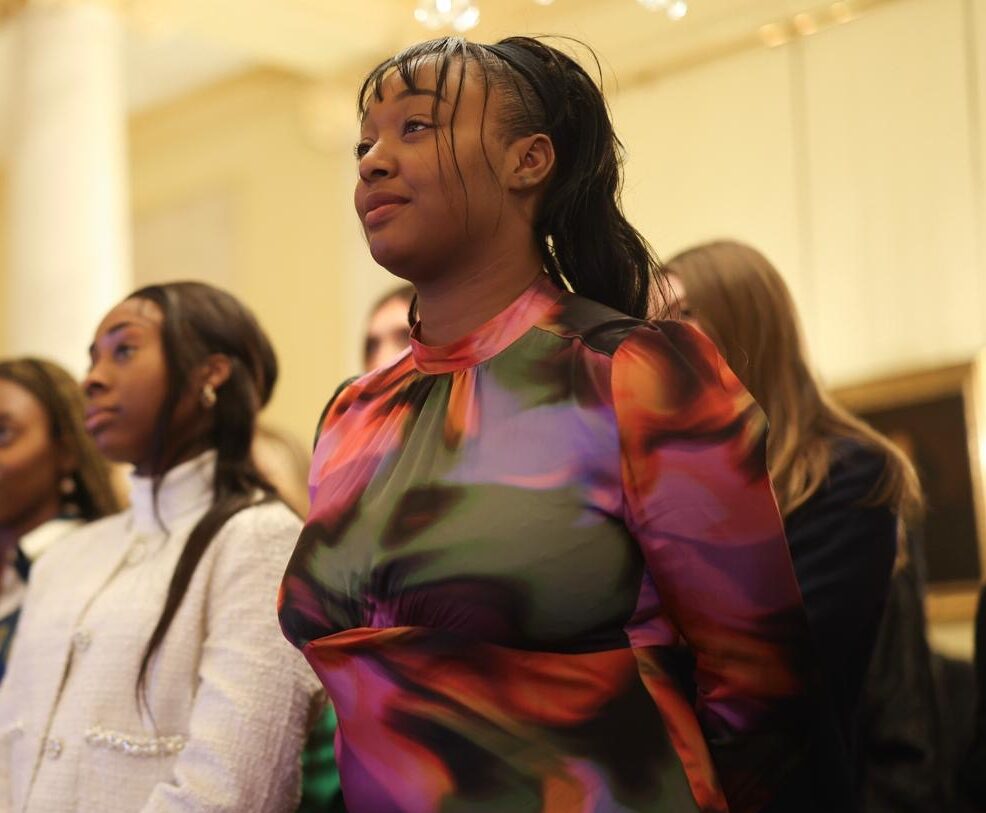“Encouraging the next generation to participate in the political system and affect positive change in society is vital for a healthy democracy. Patchwork Foundation is creating a space to make politics more accessible, and I credit you for the exemplary impact you are having.”
These past few weeks have been challenging for women. Whilst we’ve been marking International Women’s Day and celebrating women’s empowerment, we’ve also had a barrage of reminders of how prevalent sexism remains, and how dangerous its manifestations can be. Last week’s tragic events have been a chilling reminder of how unsafe Britain can be for women, as well as other marginalised genders, but the reality is many of us face abuse even whilst at home. You only need to hop on to Twitter and take a scroll through some of your favourite women activists and politicians’ pages to see how limited progress has been, and how much more work is still needed. 21st-century sexist abuse has both retained many of its old forms, and also acquired some new ones with the helping hand of social media.
This is not a particularly bold or ground-breaking claim. There have been a number of studies over the past few years that have shown the increasing problem of online abuse targeted towards women. Plan International’s 2020 survey, for example, covered 14,071 teenagers and women aged 15-25 from 22 countries ranging from Canada, to Brazil, to Zambia. Over half of those surveyed had experienced some form of online abuse, including abusive and insulting language, deliberate embarrassment, body shaming, and threats of physical and sexual violence. Glitch, a leading UK charity focused on making online spaces safer for everyone, reports that women are 27 times more likely to be harassed online than men across the globe. This is doubly true for those who sit at the intersection of multiple identities; women from ethnic minority backgrounds, women who identify as LGBTQI+, women with larger bodies, women with disabilities – all experience this abuse at an exacerbated level.
This abuse finds a natural home in targeting women engaging in political spaces, already divisive and rife with sexism. The examples we could give are endless; Jo Cox’s murder, Jess Phillips receiving 600 rape threats in the space of a single night, Baroness Nicky Morgan citing abuse as one of the reasons she was stepping down as MP in 2019. Again, it is women from Black, Asian, and Minority Ethnic (BAME) communities who bear the brunt of this abuse, with Diane Abbott famously receiving around half of all abusive tweets sent to women MPs in the run up to the 2017 election. Even excluding Diane Abbott, on average Black and Asian women MPs in 2017 received 35% more abusive tweets than their white peers across party lines.
Given all of this, it’s unsurprising that in the face of this onslaught, many of us are turned off from engaging in public life – and who can blame us? Anyone who has been on the receiving end of online abuse knows that the violence behind the words is palpable, it is frightening, and it is genuinely dangerous. The psychological impact alone can cause low self-esteem, depression, anxiety, and other forms of mental and emotional stress, but can also escalate to real threats to a woman’s physical safety.
Nicky Morgan was not the only MP to step down in 2019 due to the abuse she faced; the number was indicative of the strain women MPs are put under, especially in that, on average, many of them were a decade younger and their Parliamentary career a decade shorter than their male counterparts. Meanwhile, a shocking 7 in 10 women said they would not become a politician due to the abuse and harassment, according to the Fawcett Society’s recent poll. Even speaking in more general terms of civic participation, Amnesty’s 2017 report showed that of the women they surveyed – aged between 18 and 55 across Denmark, Italy, New Zealand, Poland, Spain, Sweden, the UK and the USA – 76% of those who reported experiencing abuse on social media made active changes to the way they used and interacted with the platform, with 32% no longer voicing their thoughts on certain issues.
This ‘silencing effect’ is especially worrying for us at the Patchwork Foundation. As a UK charity we work to equip young people from underrepresented communities with the tools, knowledge, and skills to support them to participate in British democracy. Young women, especially those who don’t have the same access to the institutional scaffolding that their more privileged peers do, need and deserve the space and safety to explore their own political leanings, to gain confidence in their voices, and to engage in public debate. If our democratic participation is blocked, if young women like myself are put off from standing for office and expressing our opinions, we as a society lose each woman’s ability to raise awareness on issues that disproportionately affect their communities, and we risk setting gender equality back by years.
We know our political system is stronger for the variety of voices within it. The participation of women from all backgrounds in our democracy is vital in order to keep our politics and our civil society representative. Any abuse that women receive on social media that makes them feel unsafe doing so is a threat to our democracy.
It is largely acknowledged that not enough is being done to combat this abuse on social media. Glitch’s 2020 survey of 484 women and non-binary people showed that 83% of those who experienced online abuse during the Covid-19 pandemic – rising to 94% for Black and minoritized individuals – ‘felt their complaint(s) had not been properly addressed’. The burden is instead often placed on the women to be the ones to change. We’re told to ‘be less sensitive’ and to ‘grow a thick skin’ if we want to enter politics, never questioning why we should have to. We’re told that we ‘asked for it’ when we signed up to be a public figure by people who confuse the line between public and private, genuine criticism and sexist abuse, freedom of speech and hate speech. We’re told to get off of social media when, like it or not, we are all increasingly relying on social media for connection, for employment, for change making; ‘opting out’ is not always a viable option, nor should it be the resolution to the issue.
How do we change this? Let us all commit to challenge this behaviour. We need to stop acting like abuse on social media is somehow unconnected to the discrimination and abuse we receive in our day-to-day lives, and instead adopt a zero tolerance approach. This means all of us – civil society leaders, politicians, social media platforms, journalists, business leaders and grassroots individuals – calling out misogynistic behaviour as we see it, adopt it as a form of hate crime and make clear there is no room for hate.
Social media has the potential to be a place of unparalleled accessibility to discussion and democratic engagement, where underrepresented and marginalised communities are able to participate in public debate and have a platform for their voices and experiences. There’s a bitter irony in the fact that it has become a place where women are actually being pushed out of the conversation.
Written by Tess Martineau, Programmes and Communications Officer at the Patchwork Foundation
Stay updated
Join our mailing list to stay up to date with all the latest!

